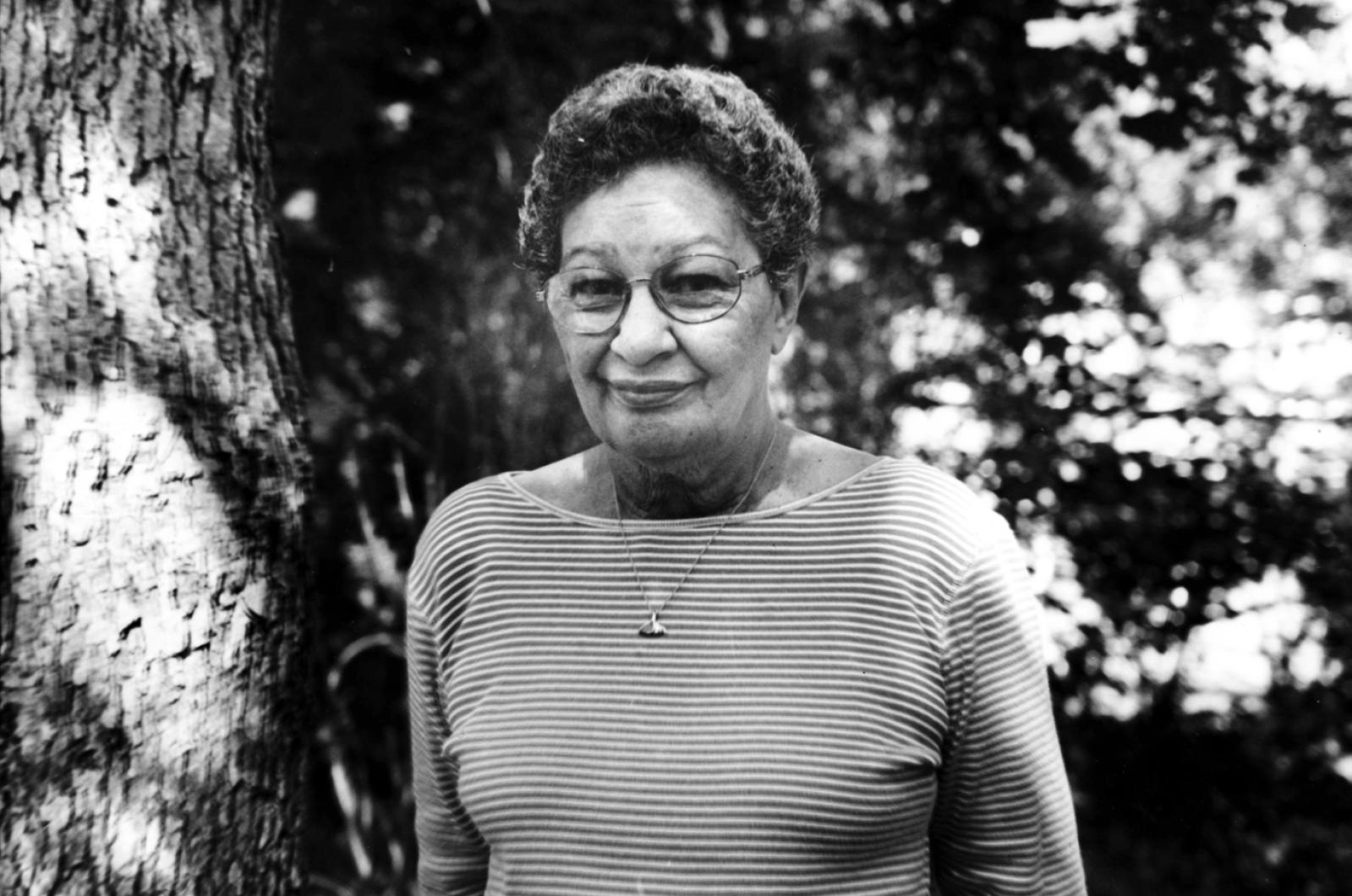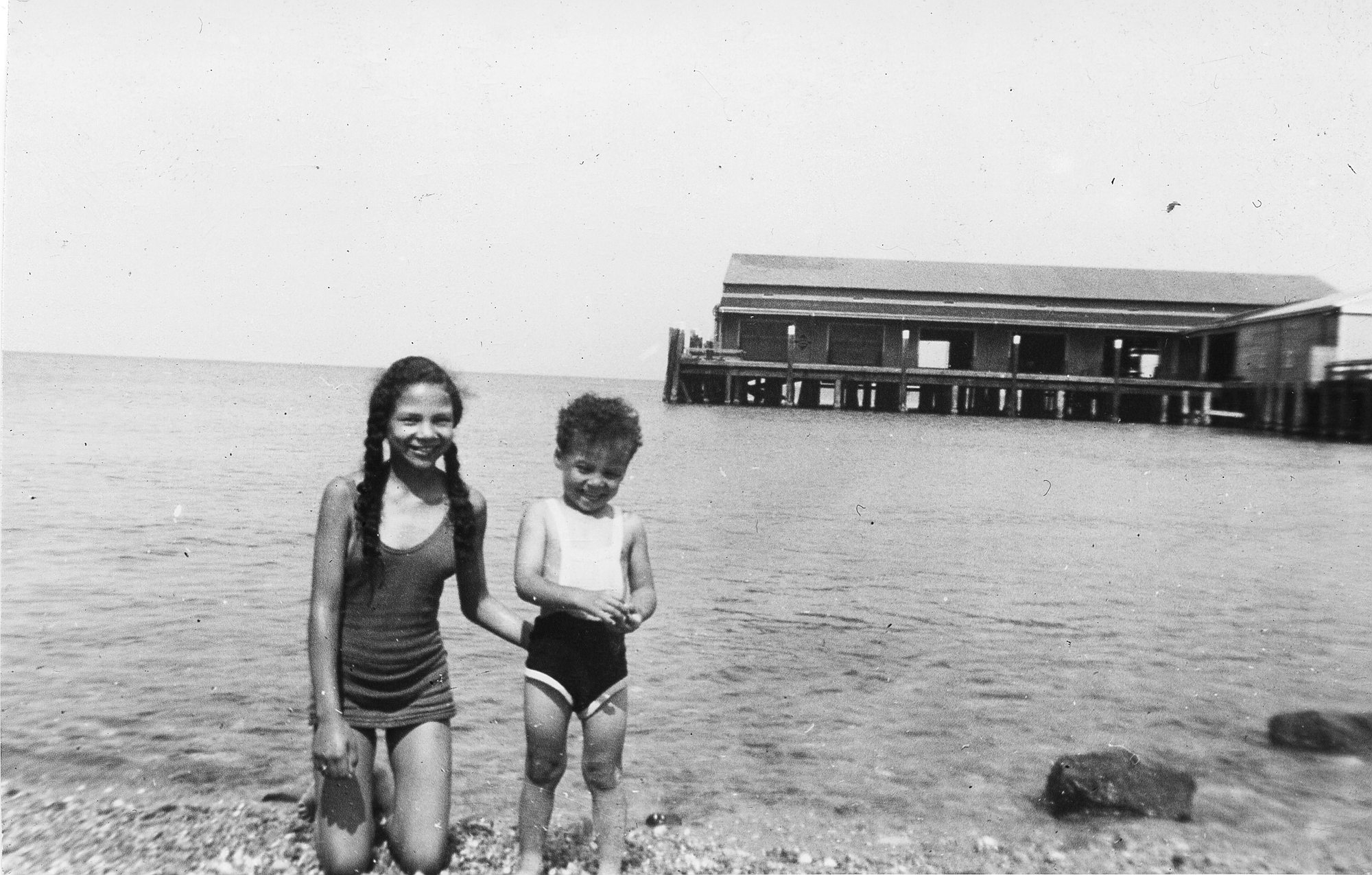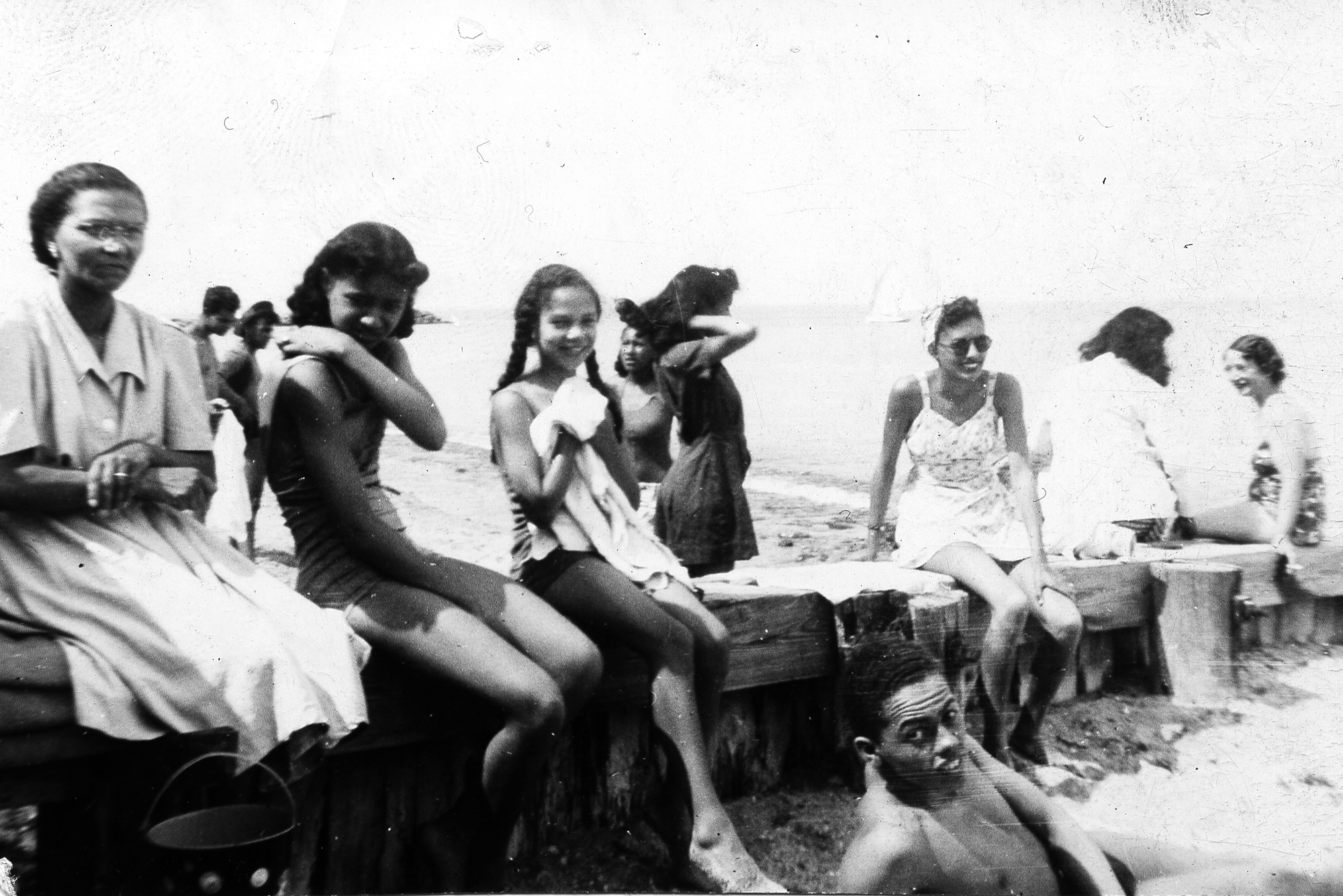Editor’s Note: The following is an edited excerpt of an interview done in 2004 by Linsey Lee with Leona Coleman Flu, the daughter of the first black stage manager in the Boston theatre district. A summer resident of Oak Bluffs from childhood on, Mrs. Coleman now lives in Atlanta, Ga. The interview is published in Ms. Lee’s book More Vineyard Voices; it appears here with permission from the author, who heads the Martha’s Vineyard Museum’s oral history center.
I was born on April 2, 1924 in Boston to Luella Barnett and Ralf Meshak Coleman. My father was the first black stage manager in the legitimate theatre. And then he was also the first black director of the Negro Theatre in Boston of the Federal Theatre Project. It wasn’t just black, but he was the first black director. Daddy played at the Charles Street Playhouse with a mixed group, The Iceman Cometh. He did all the great stuff. He loved Shakespeare. He did Macbeth and he did things that people weren’t doing with mixed casts. He was on the road with Anna Lucasta; he played Danny as well as being the stage manager. He was involved in everything. My father had to work and earn regular money. He was a presser in a dress factory on Kneeland street. And then he could do his theatre at night, weekends; that was his whole life. It had to be very hard for him, when I think about it. But he never let it stop him, you know. He never let it. And he never seemed bitter either. His job was the theatre and doing what he did, directing plays and writing and you know that was it. I never heard my father say “I’m tired.” The theatre brought him to life. The theatre was his life. And if he lived today it would be completely different. ’Cause he could have had the opportunities that weren’t there. They’re here now thanks to people like him. Built on his back, really. And others like him.
I was three years old when we came to the Vineyard. My mother was working as a waitress in Vineyard Haven. Mother boarded us, my brother and I, with the Sylvas in Vineyard Haven. And we stayed at Ma Foy’s, a family friend. I lived up in Gay Head for a while, too. I’ll be walking around up there sometimes in those shops and they know exactly who I am. Still!
It was in the late 1930s that my mother bought on the Vineyard. The house was an old farmhouse and it had land and it had rambling roses on a white picket fence. This area has always been a little neighborhood. Everybody knew everybody. They still do. Some socialize, some don’t, but we know everybody. Everybody sort of looks out for everybody, but it’s always been the same, all my life.
We took the train down from Boston that came into Woods Hole — right by the ferry. I remember getting on the train and standing up and it was so crowded we rode in the mail car, and there were chickens that were flying around in there. That was fun. And we’d sit on the mailbags and all. I guess that was illegal, but they did it. We didn’t care. It was quite an experience.
My father would come every weekend and then he’d have maybe two weeks vacation. We were lucky because we’ve had a time I don’t think the kids today have. It was a little more unspoiled and unsophisticated and, because of my parents, it was just plain fun. They loved people and it was an open house. People would come and go and come and go and come and go. Today’s gotten very social, I think, and the networking and all that crap. Luckily we missed all that. It was just we were here and had fun and everybody was welcome.
We would walk down to the beach. We used to go a lot by the boat wharf and we’d go coin diving. People throw the coins from the ferry and we would put them in our jaws and in our cheeks. My grandson, he started doing it with some friends and I had to laugh. He said, “What are you laughing at, Nana?” I said, “I used to do that.” Well, they couldn’t believe that this old lady did it. I said, “I could still do it, but I’m not going to take a chance.”
We would go swimming all the time. When I used to go swimming at the so-called Inkwell, it wasn’t called the Inkwell then. We named it the Inkwell as an inside joke. At that time they had the pay beach and the blacks couldn’t go there. They had all the little stalls where they could change their clothes. I think it cost a nickel a day, which is ridiculous when you think about it. And they put a fence that separated pay beach from the Inkwell. We didn’t care because we dove under the fence just to bug them and we’d go in and swim. We just did it to irritate them because that beach was lousy. They had no sand and the fact that they had all these wooden changing bins, I call them, it cast a shadow so the beach was not nice. We had the better beach, you know, but that’s how it was.
They always said that State Beach was all Edgartown beach so therefore you couldn’t go. Then later on in the 1940s somebody found out legally that wasn’t true, and that’s when blacks started going. The only blacks that went there early on were the maids that worked for people from Edgartown. They wouldn’t come to our beach. They were snooty. We didn’t associate with them anyway so we didn’t care. They’d sit there all dressed up — they wouldn’t go in the water — with their little straw hats on. Just prissy and prim and here we’d come on our bikes — the hoydens. We didn’t speak the same language . . . so never the twain mixed.
We would always go swimming in the rain. My mother would take us down and drop us off because she didn’t really like the beach. If it was raining, the water was always warmer or seemed to be. Then she’d come with big blankets and wrap us up and bring us sandwiches and umbrellas. We’d be there in the rain under these big umbrellas. You’re wet anyway. I can never understand why people, once it starts to rain on the beach, they act like: “Oh, my God! I can’t get wet!” And yet they’ve gone to the beach to get wet. Unless there’s going to be thunder and lightning, why do they have to leave the beach? Put the stuff under your umbrella and enjoy it. But they don’t do that. I really sit there and I laugh when I see that.
I would roam all these back roads on my bicycle. I tried to go up to Gay Head one day and I got up there, I think, but I didn’t have any strength to come home. So this woman put me in her car with my bicycle and brought me home. But my mother was never worried. You didn’t have to worry then. There wasn’t anybody to harm you, and people would give you lifts. We’d hitchhike. We’d hitchhike out to the beach and hitchhike back home. It was wonderful to grow up with such freedom.
I missed one summer on the Vineyard and I hated it. I went to Camp Atwater. It was the camp for upscale blacks; I went for two weeks and was miserable. I did not like having to swim in the lake, freezing cold, at eight o’clock in the morning. I guess I’m just not one to be told that you’ve got to do this and that at certain times. So anyway that was the end of my camp experience.
But it was utopia for us as kids here because no one bothered us as children. I didn’t even think about race to tell the truth. As kids you’re too busy having fun. As long as nobody comes right out and calls you a name or something. If they’d done that, I would have smacked them. My mother taught me that.
There’s always going to be bitterness and prejudice. We have enough to do to live without coping with that. I’ve tried to tell my kids I don’t care if you marry out of your race. I say, “As long as you think that you can be happy, you don’t have to restrict yourself. There’s good and bad in every race.” And there’s prejudice in every race. Everybody has it one way or another.









Comments
Comment policy »